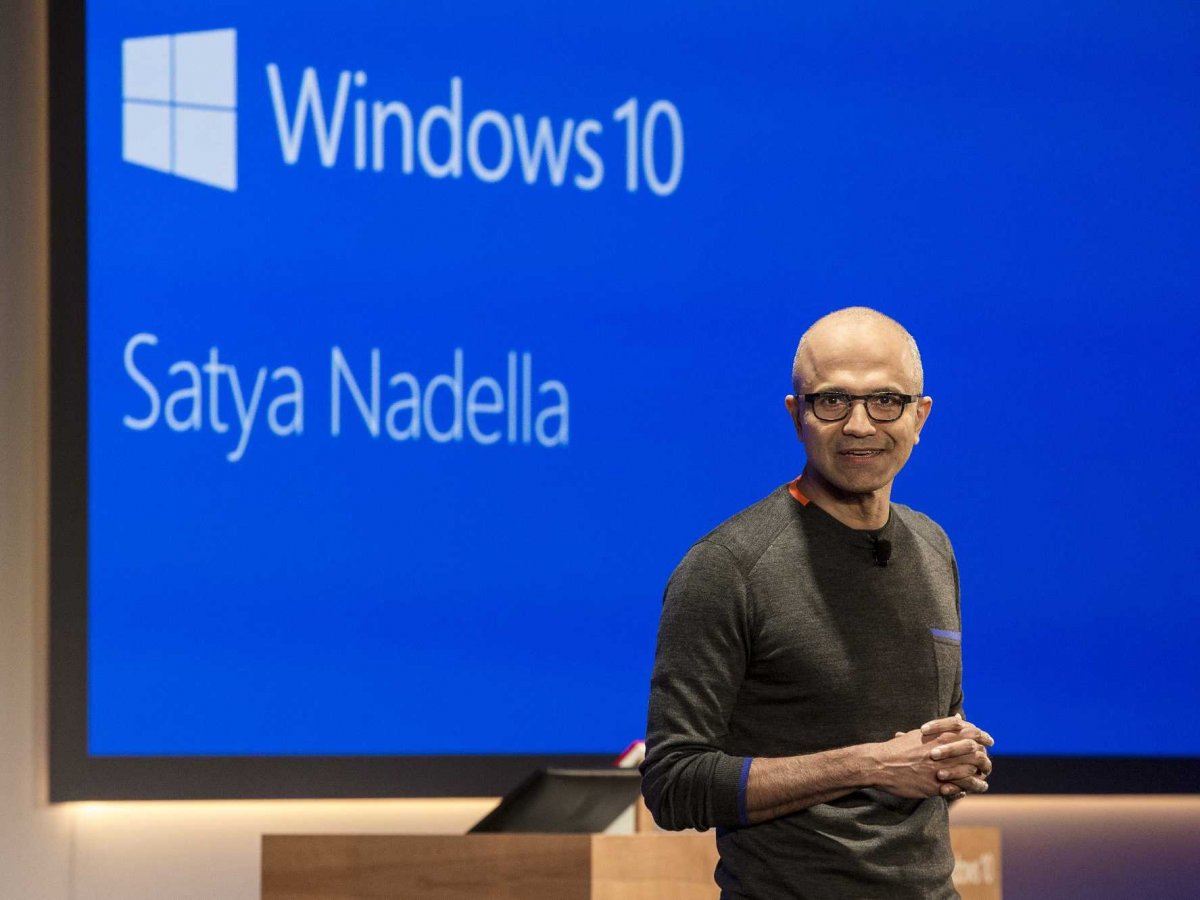Since the time Satya Nadella took over as Microsoft’s CEO, the Windows maker has evolved into a company that builds software instead of staying put as the company that built the best desktop operating system. The cloud business has seen tremendous growth under Nadella’s watch, ably helped by the ever increasing popularity of office productivity applications such as Office 365 and, more recently, Microsoft Teams. Most of the media reports about Microsoft now revolve around Office 365, Microsoft Azure and even Microsoft Dynamics, their business management software. Windows 10 does get its fair share of media attention, but not the way the old Windows practically hogged all the limelight.
Desktop sales have now been declining for four year in a row, and this year is all set to become the fifth one. The problem is, nobody knows when the sales will stabilize and, even if it does, it’s not going to feed the growth hunger for a company like Microsoft. With the desktop’s future looking bleak, Window’s future also looks bleak because the company has near zero presence in the mobile operating system world ruled by Google’s Android and Apple’s iOS. There is literally no space for another player and, honestly, nobody is going to be interested in spending in the billions and then wait for years to start reaping some tangible benefits.
Nevertheless, Microsoft’s shareholders still wanted to know Nadella’s plans for Microsoft’s mobile future. Here’s an interesting excerpt from the annual shareholders meeting:
Thank you. My name is Jim Pierce. I am from Bothell. And I am a long time Microsoft fan. I run my business using your software. I own Microsoft Windows phone and I use it 18 hours a day. I have heard that you are stepping away from mobile. Can you calm me down and tell me where your future – what’s your vision is for mobile?
Satya Nadella
Yes. So, our overall approach again to the previous question is we think about mobility broadly. In other words, we think about the mobility of the human being across all of the devices, not just the mobility of a single device. That said we are not stepping away or back from our focus on our mobile devices. What we are going to do is focus that effort on places where we have differentiation.
If you take Windows Phone, where we are differentiated in Windows phone is it’s manageability, it’s security, it’s continuing capability that is the ability to have a phone that in fact can even act like a PC. So, we are going to double down on those points of differentiation.
In my opinion, Nadella couldn’t have said it better. There is no point in Microsoft taking Android and iOS head-on. They did that before and it didn’t work out. Then they bought Nokia, tried to create their own space by entering the hardware domain and found out that they had bitten off more than they could chew, and had to let go of significant parts of the business. Now, all they want to do is work on those things that have a higher probability of success, such as their Surface lineup of products, software for business users and consumer-focused apps instead of mobile operating systems.
But mind you, that’s not a sign that they’re taking a soft line approach to their mobile agenda. On the contrary, what they’re trying to do is create a cross-device experience that they hope will ultimately create a meltdown in the current segregation between mobile and desktop environments. And at the heart of it is the Universal Windows Platform.
Such a strategy, if executed well, will disrupt both Apple and Google, permanently maiming the dominant device-based OS scenario around the world and creating a revolution in mobility.
But much of that depends on Microsoft’s ability to execute the plan to a predefined timeline that only Nadella and a few insiders know at this point. So, rather than talk about when the Surface Phone might surface, it’s more relevant to talk about how their UWP apps collection is growing. Of course, that information is not easy to come by, but we do know that the entire Xamarin-UWP-Windows 10 superstructure is built on Microsoft’s bet on universal apps that can run on any Windows device – as well as Android and iOS devices, just to make the deal that much sweeter for developers.
The cornerstone of this “Edifice of Mobility” is developers, which is one of the reasons why Microsoft has been warming up to open source. They’ve now even become a Platinum Member in The Linux Foundation, an age old nemesis of the old Microsoft. They now realize that the way into the mobile operating system duopoly is through developers who helped build those ecosystems in the first place. It’s not about Surface Phone; it’s about what’s underneath the surface of the phone.
And it’s definitely an all-Nadella decision. Neither the founder nor former CEO of Microsoft would have dreamed of taking this strategic line of action. A lot is riding on Nadella’s vision for Microsoft, and he’s the only pilot who can effectively navigate the massive ship called Microsoft through the murky, mine-ridden waters of the mobile world.
Thanks for reading our work! Please bookmark 1redDrop.com to keep tabs on the hottest, most happening tech and business news from around the world. On Apple News, please favorite the 1redDrop channel to get us in your news feed.



